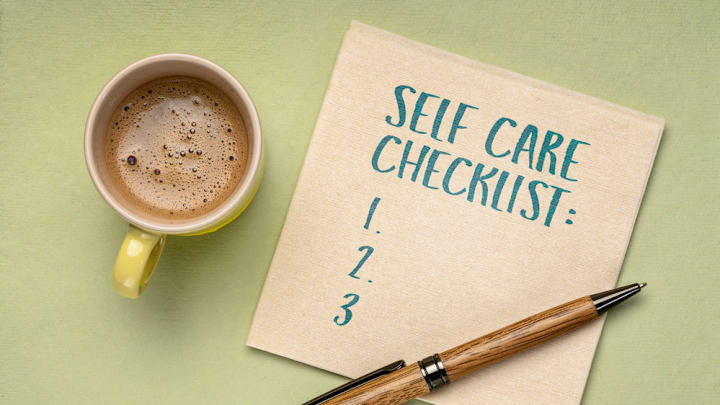The Link Between Skincare and Mental Health

When people talk about skincare, it’s often in terms of appearance—reducing breakouts, boosting glow, slowing signs of aging. But beneath all the serums and routines lies something more powerful: the way skincare can affect how we feel. The connection between skincare and mental health is real, complex, and often overlooked in the pursuit of perfect skin.
Whether it's a calming ritual, a confidence boost, or a sense of control during tough times, skincare has quietly become a form of self-care for many. It’s not about vanity—it’s about visibility, both in how we present ourselves to the world and how we take a moment to care inwardly.
Let’s explore why skincare matters not just for your complexion—but for your mental well-being.
Rituals That Ground Us
In a chaotic world, having a simple, predictable routine can offer a surprising sense of peace. Skincare provides that—especially when done mindfully.
The steps are physical, sensory, and grounding:
- Washing your face with warm water
- Gently massaging in a serum
- Noticing the scent of a cleanser or the texture of a moisturizer
These seemingly small actions can create a moment of pause in your day—something mental health experts often describe as beneficial for anxiety and mood regulation. It’s a chance to check in with your body, your breath, and your emotional state.
Touch as a Form of Self-Compassion
Touch is one of the most powerful human experiences—and many people don’t receive enough of it. Gently applying a cream or patting on toner might seem minor, but it’s a form of nurturing physical contact that can offer comfort, especially during periods of stress, isolation, or low mood.
For some, skincare becomes a daily expression of self-love. Not in the performative, "treat yourself" way, but in a quiet, affirming one. The message is simple: you are worth taking care of.
Confidence and Self-Perception
There’s no shame in feeling better when your skin is clearer or your dark circles are less pronounced. It’s not about chasing perfection—it’s about feeling comfortable in your own skin.
Skin conditions like acne, rosacea, or eczema can take a real toll on mental health, sometimes contributing to:
- Social withdrawal
- Low self-esteem
- Anxiety or depression
While skincare alone isn’t a cure, taking action—choosing products that soothe, protect, or heal—can restore a sense of agency. That shift, from helplessness to active care, can make a major difference in how someone feels about themselves.
The Stress-Skin Cycle
Stress can show up on your skin—and skin issues can cause more stress. It’s a frustrating feedback loop.
Here’s how it often plays out:
- Stress raises cortisol, which can increase oil production and inflammation
- That leads to breakouts or flare-ups
- Which can lead to self-consciousness or frustration
- Which increases stress—and round we go
Skincare, especially when paired with stress-reducing practices like deep breathing or journaling, can be a way to interrupt the cycle. Even something as simple as taking a few deep breaths while applying your moisturizer can shift your nervous system out of fight-or-flight mode.
Skincare and the Power of Routine
For those struggling with mental health—especially depression—daily tasks can feel overwhelming. Having a simple skincare ritual can act as a low-barrier, achievable goal. It’s a small win. And on hard days, small wins matter.
Building routines also supports:
- Structure, which can be comforting during emotional turbulence
- Habit stacking (like brushing teeth + skincare), which increases follow-through
- A sense of normalcy, especially during periods of instability
Even a one-minute cleanse can offer a feeling of accomplishment.
Beauty Culture: A Double-Edged Sword
Of course, the skincare world isn’t always kind to mental health. Beauty standards can be unrealistic. Marketing often plays on insecurities. “Flawless skin” is still seen as the ideal—and that can create pressure and guilt when real-life skin doesn’t cooperate.
This is where mindful skincare makes a difference. Approaching your routine from a place of care—not correction—can shift the whole experience.
Instead of “fixing flaws,” think:
- How can I nourish my skin today?
- What feels good to apply?
- Which step helps me feel most like myself?
It’s a mindset that replaces pressure with presence.
When to Seek More Support
While skincare can support mental wellness, it’s not a substitute for therapy, medication, or professional help when needed. If skin issues are affecting your quality of life or you find yourself obsessing over perceived imperfections (as with body dysmorphic disorder), reaching out to a mental health professional is an important and healthy step.
Final Thoughts: Skincare That Feeds the Soul
At its best, skincare is an act of intention, comfort, and quiet empowerment. It’s not about vanity—it’s about value. The value of pausing for yourself. Of feeling your own hands care for your own face. Of facing the world with a little more softness and strength.
So the next time you pat on serum or smooth on SPF, know that you’re not just tending to your skin—you’re supporting your spirit, too.
And that kind of glow? No bottle can fake it.